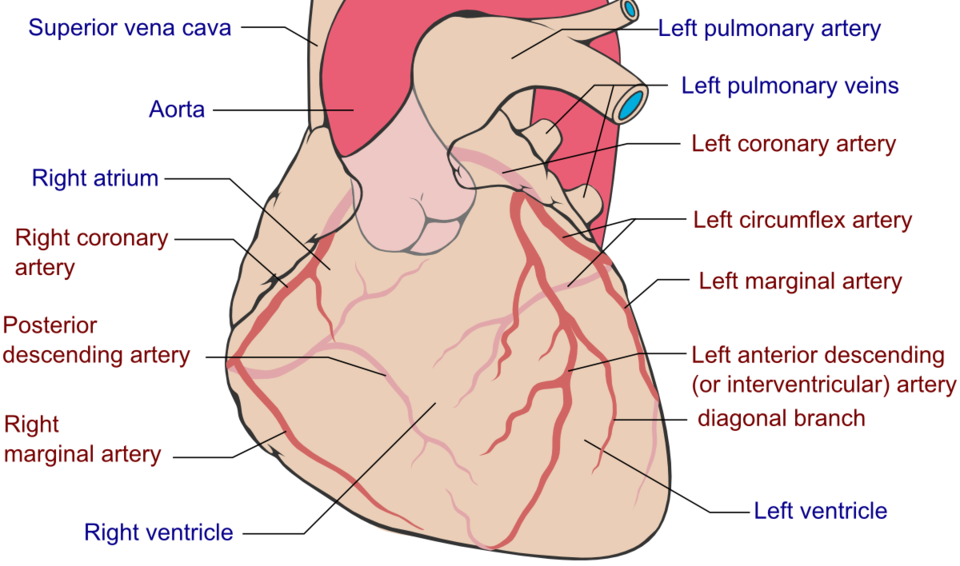Cardiology > Syncope
Syncope
Background
Syncope is a sudden, transient loss of consciousness and postural tone due to transient global cerebral hypoperfusion, followed by spontaneous recovery. It is typically rapid in onset and brief in duration, often with a prodrome and without postictal confusion.
I ) Classification/Types
A) By Mechanism:
- Reflex (Neurally Mediated) Syncope: Includes vasovagal (most common), situational (e.g., micturition, coughing), and carotid sinus hypersensitivity.
- Orthostatic Hypotension: ≥20 mmHg drop in systolic or ≥10 mmHg drop in diastolic BP upon standing due to autonomic failure, volume depletion, or medications.
- Cardiac Syncope: Due to arrhythmias (e.g., bradycardia, tachycardia), structural heart disease (e.g., aortic stenosis, HOCM), or cardiac ischemia.
- Cerebrovascular Syncope: Rare; includes vertebrobasilar insufficiency and subclavian steal syndrome.
B) By Onset:
- Acute/Isolated Episode: Often benign, especially if reflex-mediated.
- Recurrent: May indicate underlying cardiovascular or neurologic pathology.
C) By Severity:
- Low Risk: Young patients, vasovagal features, normal ECG.
- High Risk: Known heart disease, abnormal ECG, syncope during exertion or supine.
II) Epidemiology
- Sex: Vasovagal syncope more common in young women; cardiac syncope more common in men.
- Age: Bimodal distribution — peak in adolescents (vasovagal) and elderly (orthostatic or cardiac).
- Geography: No specific geographic predilection.
- Comorbidities: Hypertension, diabetes, coronary artery disease, Parkinson’s disease, autonomic neuropathy.
III) Pathophysiology
The underlying pathophysiology involves a critical drop in systemic blood pressure or cardiac output, resulting in reduced cerebral blood flow below the threshold necessary to maintain consciousness.
Common mechanisms include:
Reflex (neurally mediated) syncope: An abnormal autonomic response causes vasodilation and/or bradycardia (e.g., vasovagal syncope), leading to hypotension.
Orthostatic hypotension: A failure of compensatory vasoconstriction upon standing results in blood pooling in the lower extremities and decreased cerebral perfusion.
Cardiac syncope: Structural or arrhythmic causes (e.g., aortic stenosis, ventricular tachycardia) abruptly reduce cardiac output.
All types ultimately impair cerebral perfusion, triggering transient loss of consciousness.
Etiology
I) Causes
- Vasovagal reflex: Emotional distress, pain, prolonged standing
- Situational triggers: Micturition, defecation, coughing, swallowing
- Carotid sinus hypersensitivity: Neck turning, shaving
- Orthostatic hypotension: Volume depletion, autonomic failure, antihypertensives
- Cardiac causes: Bradyarrhythmias (e.g., AV block), tachyarrhythmias (e.g., VT), aortic stenosis, hypertrophic cardiomyopathy
- Neurologic causes (rare): Seizure (rule out), vertebrobasilar insufficiency
II) Risk Factors
- Advanced age
- History of cardiovascular disease
- Use of diuretics, antihypertensives, or nitrates
- Prolonged standing or dehydration
- Autonomic dysfunction (e.g., diabetes, Parkinson’s)
- Family history of sudden cardiac death
Clinical Presentation
I) History (Symptoms)
- Brief loss of consciousness with spontaneous recovery
- Preceded by nausea, lightheadedness, tunnel vision, diaphoresis (vasovagal)
- Triggered by emotional stress, prolonged standing, or pain
- Syncope during exertion (suggests cardiac cause)
- No postictal confusion (helps differentiate from seizure)
- May have associated palpitations or chest pain (cardiac etiology)
II) Physical Exam (Signs)
Vital Signs:
- Hypotension (especially orthostatic)
- Bradycardia or tachycardia
- Normal in vasovagal episodes
- Orthostatic BP Measurement: ≥20 mmHg drop in systolic or ≥10 mmHg drop in diastolic BP upon standing
Cardiac Exam:
- Murmur of aortic stenosis (crescendo-decrescendo at right upper sternal border)
- Displaced apex or S4 in hypertrophic cardiomyopathy
- Irregular rhythm in arrhythmia
Neurologic Exam:
- Typically normal
- Focal deficits suggest alternative diagnosis (e.g., TIA, stroke)
Differential Diagnosis (DDx)
- Seizure (tonic-clonic movements, postictal state)
- Hypoglycemia
- Transient ischemic attack (TIA)
- Drop attacks (no LOC)
- Psychogenic pseudosyncope
- Vertigo
- Intoxication or drug overdose
Diagnostic Tests
Initial Tests:
- Electrocardiogram (ECG): Detect arrhythmias, conduction blocks, ischemia, Brugada or long QT
- Orthostatic vital signs: Assess for orthostatic hypotension
- Echocardiogram: Evaluate for structural heart disease
- Glucose: Rule out hypoglycemia
- CBC and BMP: Rule out anemia or electrolyte disturbances
Additional Testing (Based on Suspicion):
- Holter monitor or event recorder: If arrhythmia suspected but not caught on ECG
- Tilt-table test: To diagnose vasovagal or orthostatic syncope
- Exercise stress testing: If exertional syncope
- Electrophysiologic study: If high suspicion of arrhythmia
- Carotid sinus massage: In older adults to detect carotid sinus hypersensitivity
- Neuroimaging: Only if focal deficits or seizure suspected
Treatment
I) Medical Management:
Reflex/Vasovagal Syncope:
- Patient education and reassurance
- Physical counter-pressure maneuvers (e.g., leg crossing)
- Increase fluid and salt intake
- Avoid triggers (e.g., heat, prolonged standing)
- Midodrine or fludrocortisone in refractory cases
Orthostatic Hypotension:
- Discontinue offending medications
- Compression stockings
- Adequate hydration
- Pharmacologic therapy: Midodrine, fludrocortisone
Cardiac Syncope:
- Treat underlying arrhythmia (e.g., pacemaker for bradycardia, ICD for VT)
- Valve replacement for aortic stenosis
- Beta-blockers for HOCM
- Antiarrhythmics for tachyarrhythmias
II) Interventional/Surgical:
- Pacemaker: For high-grade AV block or sinus node dysfunction
- Implantable Cardioverter-Defibrillator (ICD): For ventricular arrhythmias or high-risk structural heart disease
- Valve surgery: For symptomatic aortic stenosis or severe HOCM
- Ablation therapy: For tachyarrhythmias
Consults
- Cardiology: If cardiac etiology suspected or abnormal ECG
- Electrophysiology: For arrhythmia workup or device evaluation
- Neurology: If seizure or TIA considered
- Geriatrics: For recurrent orthostatic or multifactorial syncope in elderly
- Primary Care/Internal Medicine: Chronic management and comorbidity control
Patient Education
- Educate on recognizing pre-syncopal symptoms
- Teach physical counter-pressure techniques
- Encourage hydration and gradual position changes
- Avoid known triggers (e.g., hot environments, alcohol)
- Vaccines (to prevent infections that could worsen orthostatic symptoms):
- Annual influenza vaccine
- Pneumococcal vaccine
- COVID-19 vaccine
Follow-up
- Reassess symptom frequency and triggers
- Monitor response to non-pharmacologic and pharmacologic therapy
- Repeat ECG or Holter monitor if symptoms recur
- Regular cardiology follow-up for those with cardiac devices
- Educate patient and family about when to seek emergency care (e.g., exertional syncope, injury, chest pain)
Stay on top of medicine. Get connected. Crush the boards.
HMD is a beacon of medical education, committed to forging a global network of physicians, medical students, and allied healthcare professionals.

